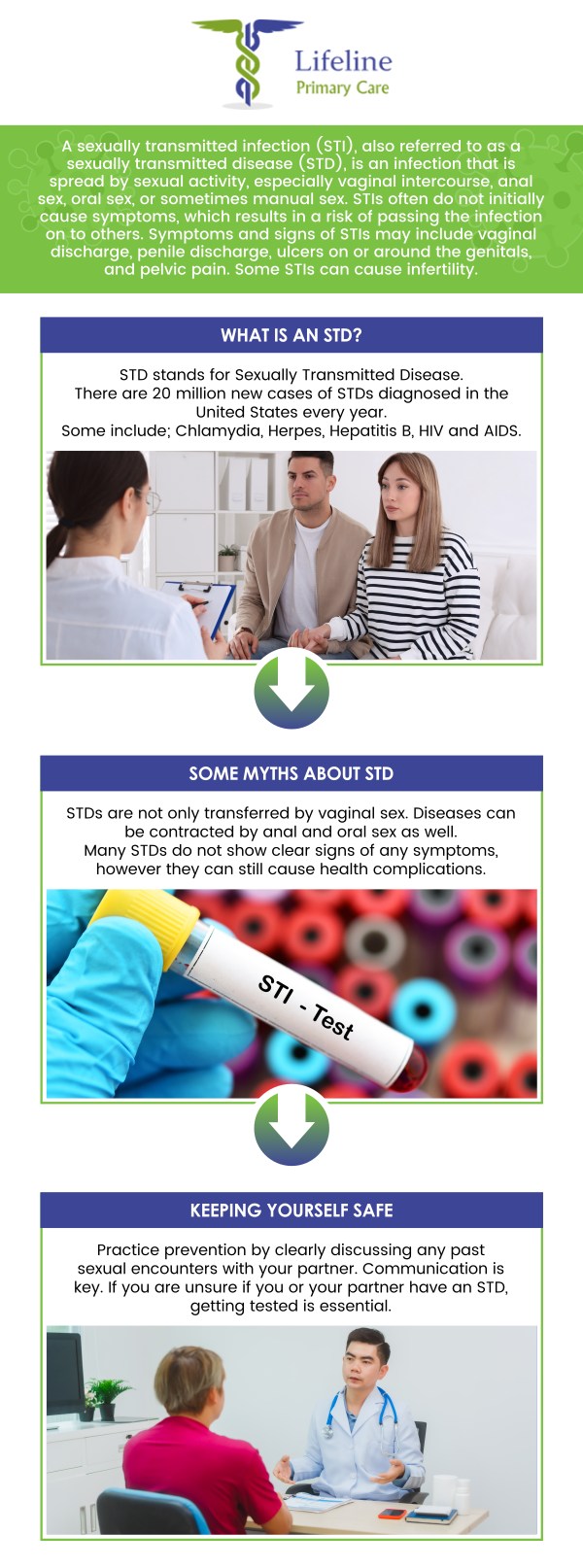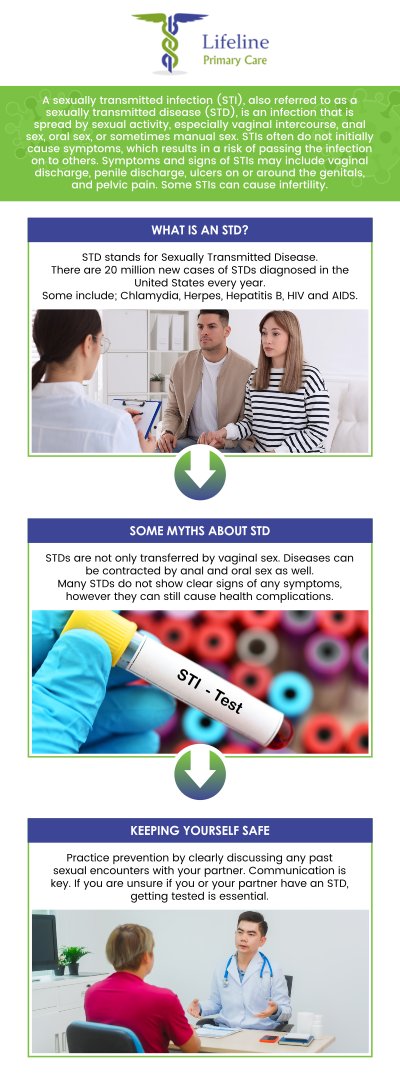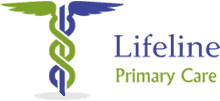Confidential STD Screening Clinic in Lilburn, GA
Confidential STD screening provides a private and secure way to get tested for sexually transmitted diseases. Symptoms of sexually transmitted diseases can include unusual discharge, painful urination, or sores on the genitals. However, many STIs have no symptoms at all, so the only way to know for certain is to get tested. Visit Dr. Aziz Pirani, MD and Dr. Safia Pirani, MD, for confidential screening. For more information, contact us or request an appointment online. We have convenient locations to serve you in Lilburn Main, Lilburn Main Extension, Lilburn – Snellville, Sandy Springs, Stone Mountain, Duluth, Clarkston, Suwanee, and Norcross GA.


Table of Contents:
Can I get an STD screening if I don’t have symptoms?
How accurate are STD screenings?
What happens if I test positive for an STD?
Can I get treated for an STD right after screening?
If you are concerned about sexually transmitted diseases (STDs), you can get an STD screening—even if you do not have any symptoms. Many STDs can exist in your body without causing noticeable signs, which means you could have an infection without knowing it. This can put your health at risk and may also lead to unknowingly passing the infection to others.
We recommend regular STD screenings, especially if you are sexually active with new or multiple partners, or if you simply want to take charge of your sexual health. Our compassionate providers offer confidential STD testing in a safe, judgment-free environment. Depending on your needs, testing may involve a urine sample, blood test, swab, or a physical examination.
Early detection is key to preventing the spread of infections and allowing for effective, timely treatment—even if you feel perfectly healthy. If you’re unsure which tests are right for you, our healthcare professionals will guide you based on your personal risk factors and sexual history.
Sexually transmitted disease (STD) screenings play a vital role in your overall health and well-being. Early detection and prevention are key, but it’s important to recognize that the accuracy of STD testing can be influenced by several factors, including the type of infection, the timing of the test, and the specific testing method used.
Our team utilizes advanced, reliable testing methods. For example, nucleic acid amplification tests (NAATs) for infections like chlamydia and gonorrhea consistently demonstrate high accuracy, with sensitivity and specificity rates above 95%. We also offer highly accurate blood tests for HIV, which are most effective when performed a few weeks after potential exposure, allowing time for the body to develop detectable antibodies or viral particles.
Despite these advances, no test is perfect. Sometimes, testing too soon after exposure—during the “window period”—may result in a false negative because the body hasn’t produced enough markers for detection. This is especially relevant for infections such as HIV, syphilis, and hepatitis. While false positives are less common, they can occur with certain testing methods or due to factors like sample collection errors or underlying health conditions.
To ensure you receive the most accurate results, our providers may recommend repeat testing or a combination of screening methods when appropriate. We encourage open communication about your risk factors and symptoms, so we can help determine the most suitable type and timing of STD screening for you.
Regular screening and honest conversations with your healthcare team are essential components of sexual health and disease prevention. At Lifeline Primary Care, we are committed to supporting you every step of the way, providing compassionate, confidential, and high-quality care.
If you receive a positive test result for a sexually transmitted disease (STD), it’s important not to panic. Many STDs are treatable and manageable with the right medical care, and our dedicated team is here to support you every step of the way.
Understanding Your Result:
A positive test result means you have an infection that needs medical attention. Our healthcare providers will carefully explain your results, answer any questions you may have, and discuss the specific STD you have tested positive for. We will recommend an individual treatment plan, which might include antibiotics for bacterial infections like chlamydia, gonorrhea, or syphilis, or antiviral medications for conditions such as herpes or HIV.
Partner Notification and Prevention:
It’s important to inform your sexual partners about your diagnosis, as they may also need testing and treatment to prevent reinfection or further spread. Our team can provide guidance on how to approach these conversations, and, if needed, connect you with local health department resources for confidential partner notification.
Next Steps and Follow-Up:
Until your provider advises otherwise, you should abstain from sexual activity to prevent transmitting the infection. Be sure to take all prescribed medication as directed and attend any recommended follow-up appointments. These steps are essential to ensure the infection is fully treated.
Protecting Your Health:
During your visit, our providers will also discuss important ways to reduce your risk of future STDs, such as using condoms, limiting your number of sexual partners, and scheduling regular STD screenings at Lifeline Primary Care.
Remember, having an STD is a common health concern, and seeking treatment is the best way to protect your health and the health of your partners. If you have questions or need support, our compassionate team at Lifeline Primary Care is always here for you.
In many cases, treatment for an STD can begin right after screening, depending on the type of infection and the results. Some STDs, such as chlamydia or gonorrhea, can be treated with antibiotics, and if diagnosed during the screening, your healthcare provider may prescribe treatment immediately. However, for other STDs, such as HIV or herpes, treatment may involve a long-term management plan, and results need to be thoroughly reviewed before prescribing medication.
If the STD screening was done through a lab test, you may need to wait for the results to come back, which can take a few days to a week. Once the results are received, your healthcare provider will discuss the next steps and, if necessary, prescribe appropriate treatment.
It’s important to follow your healthcare provider’s advice and complete the full course of treatment, even if symptoms subside early. Early detection and treatment help reduce the risk of complications and the spread of STDs to others.
If you need STD testing or have concerns about your sexual health, visit Lifeline Primary Care today. Your privacy, safety, and well-being are our top priorities. For more information, contact us or request an appointment online. We serve patients from Lilburn Main GA, Lilburn Extension GA, Lilburn – Snellville GA, Sandy Springs GA, Stone Mountain GA, Duluth GA, Clarkston GA, Suwanee GA, Norcross GA, Tucker GA, Alpharetta GA, Sugar Hill GA, Scottdale GA, Decatur GA, Doraville GA, Dunwoody GA, Roswell GA, Chamblee GA, Redan GA, Gresham Park GA, Johns Creek GA, Buford GA, and surrounding cities.
Check Out Our 5 Star Reviews


Additional Services You May Need
• Sports Physical Exam
• School Physical Exam
• X-Ray
• Foreign Body Removal
• Minor Surgeries
• Confidential STD Screening
• Allergy Testing
• Immigration Physical Exams
• IUD Insertion
• DOT Physical Exam
• Knee Gel Injections
• Chronic Care Management
• Women’s Health
• Vitamin B12 Injections
• Myers Cocktail IV Therapy
• Weight Management
• Suturing Clinic
• Incision and Drainage
• Dermatological Procedures
• Skin Tag Removal
• Toenail Removal
• Biopsies
• Lab Services
• Lead Screening
• TB Screening
• Hearing/Vision Test
• EKG Services
• Spirometry Testing
• Echocardiograms
• Ultrasounds
• ABI (Circulation Test)
• Urine Drug Testing
• Nerve Conduction Studies
• Annual Physicals
• Immunotherapy
• Neuro Scans
• Employment Physicals
• Medicare Wellness Exams
• VAT/ENG Studies
• Autonomic Nervous System Scans
• Nuclear Scans
• Acute Care
• Smoking Cessation
• Immunizations
• Joint Injections
• Vaccinations
• Covid-19 Vaccines
• Nexplanon
• Primary Care

Additional Services
You May Need
• Sports Physical Exam
• School Physical Exam
• Primary Care
• X-Ray
• Foreign Body Removal
• Minor Surgeries
• Confidential STD Screening
• Allergy Testing
• Immigration Physical Exams
• IUD Insertion
• DOT Physical Exam
• Knee Gel Injections
• Chronic Care Management
• Women’s Health
• Vitamin B12 Injections
• Myers Cocktail IV Therapy
• Weight Management
• Suturing Clinic
• Incision and Drainage
• Dermatological Procedures
• Skin Tag Removal
• Toenail Removal
• Biopsies
• Lab Services
• Lead Screening
• TB Screening
• Hearing/Vision Test
• EKG Services
• Spirometry Testing
• Echocardiograms
• Ultrasounds
• ABI (Circulation Test)
• Urine Drug Testing
• Nerve Conduction Studies
• Annual Physicals
• Immunotherapy
• Neuro Scans
• Employment Physicals
• Medicare Wellness Exams
• VAT/ENG Studies
• Autonomic Nervous System Scans
• Nuclear Scans
• Acute Care
• Smoking Cessation
• Immunizations
• Joint Injections
• Vaccinations
• Covid-19 Vaccines
• Nexplanon




